
All the staff at Access Training UK are genuinely sorry for the many staff at New Career Skills who have lost their jobs today after the company went into administration. Hundreds if not thousands of trainees will not be able to complete their plumbing and electrical training, and in a lot of cases may have lost their life savings as well.
Approximately twelve months ago we helped students from another training company that went into liquidation, and in some cases they managed to get the money back they had paid and complete their training in one of our training centres based throughout the country. If you are one of the many New Career Skills trainees who do not know where to turn please contact one of our trained advisors on 0800 345 7492. They are here to advise you on what steps you can take. Alternatively, if you are a member of staff please feel free to contact us regarding positions we have available.
December may not seem like the most suitable time to be studying on a trades training course to become a professional tradesman, but the truth is these winter months are actually when plumbers, electricians, gas engineers, bricklayers and roofers are needed more than ever. With the end of the year just around the corner and the cold weather homing in on Britain, government-endorsed standards group Trustmark is warning owners to ensure that their homes are fully prepared before the harsh season hits.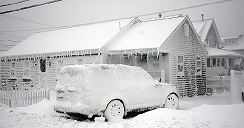
Trustmark have already noted a rise in tradesperson viewings on their online database during October, which saw an a 36% increase in comparison to 2012. Across the trades roofers (32%), plumbers/heating engineers (35%) and electricians (20%) were the ones to see the biggest rise, and with heavy snow forecast until May 2014, these professionals are going to be needed more than ever.
Below is a list of quick spot checks Trustmark recommend doing to help reduce the risk of the winter weather causing damage to your home:
- Most importantly, you should get your boiler and central heating checked/serviced by a Gas Safe registered engineer. By making sure your boiler is in peak condition, it will burn far more efficiently - meaning it'll use less fuel AND be warmer. Checking your boiler/central heating also means that if there is any serious problems, you'll be avoiding any tragedy that could happen.
- Make sure your insulation is in good quality. Not just your loft, but also look into lag pipes, water tanks and draught excluders.
- Clean out gutters and outlets of any leaves and debris, followed by checking for any leaks or damage.
- Look out for any damaged or loose tiles on your roof (from ground level to ensure your safety). Leep an eye out for any leaks or condensation appearing on the ceiling.
- Make sure no exterior walls have any cracked, loose or missing pointing. If they do, be sure to get it fixed before water can get into it.
They also highly recommend keeping a useful list of phonenumbers of tradepeople in your area just incase of an emergency - plumbers, electricians, gas engineers, roofers, carpenters...whoever you might need if a problem should arise.
So if you're a tradesperson yourself, be prepared for your work to be more crucial to homeowners than ever - you never know when you're going to be needed. Alternatively, if you're looking to start a new career as a fully-qualified tradesperson now could be the perfect time to start. An intensive course from Access Training Academies can have you up and qualified in a matter of weeks - just in time to help those in need. To find out more about our range of courses, including plumbing, gas, electric and various construction trades, please give our advisers a call on 0800 345 7492.
When hiring an electrician to work in your home it's important to ensure that they've completed a suitable electrical training course and earned all of the necessary qualifications. But it seems not enough Brits are doing this, as new research from the Electrical Safety Council has found that on average a startling one in four people have hired an electrician without checking their credentials. 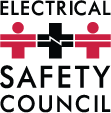
The charity estimates that around 20,000 non-registered electricians are currently active in the UK, so having a casual attitude toward checking they have the right electrician qualifications is a huge risk to you and anyone else who lives in/enters your home. Electrical accidents are responsible for half of all house fires, with someone dying every week from one as well. Vigilance doesn't cost anything, but ignorance could cost you your life.
The ESC's survey also revealed that a third of people (based on a random sample of 2018 adults) have hired an electrician based on a recommendation without first checking creditials and - more more alarmingly - a quarter would KNOWINGLY use an unregistered tradesperson if they were in a hurry. The study also found that nearly 1.3 million people have paid a proper electrician to come and fix damage caused by an unregistered one.
This worrying figure shows no sign of decreasing either, as a third of registered electricians admitted to an increase of substandard or dangerous work carried out by rogue tradesmen in the last few years. They also warned of relying on other tradesmen to complete work that should be completed by someone who has completed an electrican training course, earned the right qualifications and become registered.
As part of their campaign to promote awareness towards checking an electrian's credentials, the ESC have taken on TV presenter and consumer champion Dominic Littlewood as ambassador. He warns: "Rogue traders come in many shapes and forms – from your mate down the pub, to the guy that helps your builder out with a few odds and ends. What can look legitimate, or sound convincing at first glance, may turn into a nightmare if the person doesn’t have the right qualifications."
If you're training to become an electrician, its your responsibility to your customers to ensure that you've received the right training and possess all of the relevant qualifications. By completing an Access Training electrician course, you'll gain both of these things as you learn from professional electricians with many years' experience in the industry. To find out more and book your place, give us a call on 0800 345 7492.
New figures from the Gas Safe Register have warned that around 900,000 homes could be at risk from a gas explosion, fire or leak resulting in carbon monoxide poisoning.
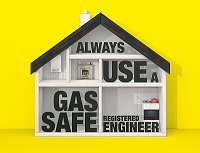 The UK's official gas safety authority has been inspecting nearly 43,000 homes nationally since January last year, and found that more than one in five (22%) privately rented homes were at risk. The 900,000 figure is an estimate of when all 4.1 million privately let homes are taken into account. This figure was noticeably higher than homes privately owned or rented through a local authority/housing association, which were at 16% and 12% respectively.
The UK's official gas safety authority has been inspecting nearly 43,000 homes nationally since January last year, and found that more than one in five (22%) privately rented homes were at risk. The 900,000 figure is an estimate of when all 4.1 million privately let homes are taken into account. This figure was noticeably higher than homes privately owned or rented through a local authority/housing association, which were at 16% and 12% respectively.
As per the Gas Safety (Installation and Use) Regulations 1998, landlords are legally required to ensure that all gas appliances and flues at safe in the properties they let. This involves arranging annual safety checks from a registered gas engineer. The legal requirement doesn't stretch to homeowners, but is also highly recommended by experts. A registered gas engineer is one who will have completed all the relevant gas training and gained the necessary qualifications, and then joined the Gas Safe Register - something which is also a legal requirement for gas engineers.
To combat this alarming figure, the Gas Safe Register is urging tenants and landlords alike to sign up to a free annual gas safety service reminder at StayGasSafe.co.uk, where users will receive an email telling them when their appliances are due for a check. In addition to these checks, landlords are also responsible for any repair work required to appliances or pipework. Should they not fulfil these obligations then they face prosecution, resulting in fines or even imprisonment in extreme cases.
Sarah Hill, Stakeholder Relations manager for Gas Safe Register, said: "Signing up for an annual gas safety reminder can help landlords stay on the right side of the law and most importantly, keep their tenants safe."
...
Are you an existing gas engineer in need of renewing your qualifications? Or alternatively a beginner looking to start a new career in the gas trade? Joining the Gas Safe Register is a legal requirement of all engineers, and this can only be done after earning the proper qualifications. Access Training Academies' instensive gas course will provide you with all the training you require, including a guaranteed work placement where you will be able to gather evidence of your work for the required gas portfolio. To find out more about the course and book your place, please call us on 0800 345 7492
With the construction trade experiencing significant growth over the last financial quarter, economists are forecasting a huge boom for the industry over the next four years. Obviously that makes it the perfect time to locate a suitable construction training course, get qualified and start a new career ready for this influx of work. But is this recession-worn Britain ready for the boom? Do we have enough quality construction training courses ready, or even enough interest generated for new recruits?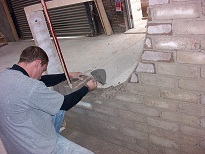
The construction industry has only just gotten itself out of a worker shortage, and the plastering and bricklaying trades are still struggling with recruitment. This also ties in with another problem the industry have, which is that a majority of the construction workforce is due to retire within the next 5-10 years. So we have a forecasted growth in output, a bulk of the workforce set to retire and trouble with recruiting new workers...no wonder the situation has been referred to as a "ticking time bomb" by some!
The first thing the UK needs to do is generate interest amongst young people. We've all heard the stories about university degrees not getting people very far in life so maybe it's time to give construction training a chance. Younger people need to be encouraged to take up a more physical career in the industry, and sold upon its strong points rather than put off by some of the stereotypes that go with it. Better pushing of the skills you learn, the variety of work and the rewards that come with it are sure to interest people, beginning them on their new career path and solving the problem of the retiring workforce.
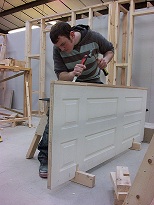 That's the time bomb problem solved in the long run, but the industry is also working to a pretty strict deadline. People are retiring every day and construction demand is continuously rising - so we need skilled workers fast. There's plenty of construction training offered by college courses across the country, but two to three years is a long time to wait and their facilities are often lacking because resources are spread thinly across so many different areas. Intensive construction courses are the answer to this problem, offering the same level of skill and expertise (if not better), in only a fraction of the time. With centres entirely dedicated to construction training, students will also know that the focus is always on exactly what they're getting.
That's the time bomb problem solved in the long run, but the industry is also working to a pretty strict deadline. People are retiring every day and construction demand is continuously rising - so we need skilled workers fast. There's plenty of construction training offered by college courses across the country, but two to three years is a long time to wait and their facilities are often lacking because resources are spread thinly across so many different areas. Intensive construction courses are the answer to this problem, offering the same level of skill and expertise (if not better), in only a fraction of the time. With centres entirely dedicated to construction training, students will also know that the focus is always on exactly what they're getting.
Take Access Training for example. Bricklaying, plastering, tiling, carpentry and painting/decorating all under one roof, with each one taught by an experienced professional. You can train in one trade, or even try your hand at them all with our tailor-made multiskills courses. And if you get the qualifications in your chosen trade and want to come back for more, we make it simply to continue on your training experience and build up your skillset even further.
So there we have it, some very crucial problems the construction industry faces before its big boom can get going properly, and some very obvious solutions to them. To find out more about Access' range of construction training and to book your place, please get in contact with one of our course advisers on 0800 345 7492 today.
So you're reaching the end of your electrical training course and wondering what comes next. With qualifications in hand, its time to set up that electrician career you've been dreaming of. But which is the better route to go down - become a domestic electrician or become a commercial one?
The main questions you'll be asking youself are "What's the difference", "Which is better?" and "Which will give me better job satisfaction?". Here we'll try to explain some of the big differences between the two different electrician career choices and hopefully help point you in the right direction.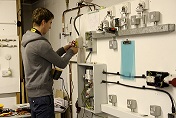
The easiest place to start with would be definitions. While a domestic installer deals with dwellings such as houses/flats/bungalows/etc, a commercial electrician's forte lies working in a wide variety of professional sectors - be it industrial, agricultural or more. Domestic installers work tends to mainly deal with single phase electrics, while a commerical electerican could find themselves installing a variety of cables including both single and three phase.
Aside from job description, one of the biggest differences between the two is the kind of lifestyle you'll be living. Most domestic installers tend to go the route of self-employment, setting up their own electrical businesses. The advantages to do this are:
- Uncapped pay
- You get to decide your own working hours
- A good variety of domestic jobs
- Face to face interaction with your customers
Meanwhile, a commercial electrician tends to be part of a larger company, which while doesn't quite have the freedom of self-employment has its own advantages - especially if you're someone who prefers the stability of a yearly salary and set work hours:
- Jeb security
- Length of jobs
- Working as part of a team
- Working in a wide variety of different sectors and locations
- Promising career progression
- Offers areas which you can then specialise in
If you're still not sure which is the right path for you, the good news is that all electrical training starts from the very beginning - so an Access Training course will give you the perfect basic training before you decide which route you'd like to go down. To find out more and speak to one of our course advisers, please give us a call on 0800 345 7492 today.
Loose Women's Janet Street Porter wrote an interesting piece in the Daily Mail last week about how university degrees are becoming less and less relevant in the working world, with more students ending up in jobs that have no relation to what they studied whatsoever. She also suggests that it's time for colleges to start focussing on offering trade learning such as plumbing, construction and electrical engineering. Her words - "Show me a poor plumber - there certainly aren't any in Central London."
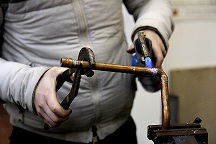 She isn't wrong, yesterday the Guardian reported that half of recent UK graduates are stuck working in non-graduate jobs according the Office of National Statistics. Specialising in a trade is becoming more and more appealing to young people, which means taking up a plumbing training course could prove far more valuable to your future than a university degree. For a start an Access Academies plumbing course can be completed in a matter of weeks, as opposed to the average of three years you'd spend at university. With the relevant plumbing qualifications you'll be out making money as a professional in a matter of weeks, while with a university degree you'll be coming out years later with no guarantee of a job and that rather sizeable student loan looming over you.
She isn't wrong, yesterday the Guardian reported that half of recent UK graduates are stuck working in non-graduate jobs according the Office of National Statistics. Specialising in a trade is becoming more and more appealing to young people, which means taking up a plumbing training course could prove far more valuable to your future than a university degree. For a start an Access Academies plumbing course can be completed in a matter of weeks, as opposed to the average of three years you'd spend at university. With the relevant plumbing qualifications you'll be out making money as a professional in a matter of weeks, while with a university degree you'll be coming out years later with no guarantee of a job and that rather sizeable student loan looming over you.
There's also the matter of a plumbing training course giving you a skill for life. A university degree can teach you some really valuable things, no one is denying that. But the harsh truth is Britain is still very much in the midst of a recession, and you'd be entering any job you might find at the bottom of the ladder. And when the going gets tough sadly these are usually the people a business is first to let go of. With an intensive plumbing course behind you, you'll have a skill for life that's always going to be in demand. Working plumbing is something we would struggle to live without, and so a trustworthy plumber is someone that's going to be on call in every household. Not only that, but it's the perfect skill to take on and make into a self-employed business meaning you won't have to deal with pushy bosses or the constant worry of redundancy. Decide when you want to work and for home much, taking the jobs you want/need and build up a friendly relationship with your customers so they'll be sure to call on you again! 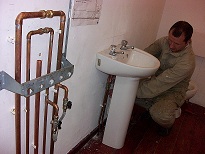
Finally, and here's the best bit - anyone can learn a trade at any age. To get into university you'll need to earn the right grades, and that relies on you doing well in exams. But what if exam situations aren't for you? Exams can cause a great deal of pressure and certainly aren't a flawless way of gauging someone's intelligence. With our plumbing courses, we'll teach you everything you need to know from the ground up and are just as welcoming toward newcomers as we are to those who may have some previous experience in the plumbing trade.
So is university still sounding like the best option for you? If you'd like to work toward a more active and physical career with greater rewards and better job security, I think the choice is obvious. Come to Access Training Academies and train to be a plumber on any one of our intensive training courses. With experienced tutors, small initmate class sizes and state-of-the-art work areas, our number one goal is get you the skills you need to make this dream a reality. To find out more and speak to one of our course advisers, please give us a call on 0800 345 7492.
You don't to have done a plumbing training course to know that there's more to being a plumber/gas engineer than just working - they also play a pretty big part in promoting awareness. Back in September we had Gas Safety Week, and this week also happens to be Carbon Monoxide Awareness week. This isn't the only thing going on this week though, as WaterAid have also proclaimed the 19th November as World Toilet Day and are asking everyone to take a second to say "thank you toilet".
 It might not sound like a big deal to many people and something that only takes up a fraction of a plumbing course, but toilets are a big part of modern plumbing and having one makes a huge impact on our lives. Toilets are considered to be one of the most basic human rights, yet alarmingly one in three of the world's population (around 2.5 BILLION people) still don't have one.
It might not sound like a big deal to many people and something that only takes up a fraction of a plumbing course, but toilets are a big part of modern plumbing and having one makes a huge impact on our lives. Toilets are considered to be one of the most basic human rights, yet alarmingly one in three of the world's population (around 2.5 BILLION people) still don't have one.
Here's a few more facts that will undoubtedly make you appreciate your porcelein throne a little bit more:
- Around 700,000 children die every year caused by unsafe water and poor sanitation. That's almost 2,000 children a day.
- Every year around 60 million children are born into homes without access to proper sanitation.
- More people in the world have a mobile phone than a toilet. Scary isn't it?

For the first time World Toilet Day has been recognised as an official day by the UN, and WaterAid is doing what it can to help build thousands of toilets across the world. Using local materials and low-cost solutions, they're always looking for new ways to deal with human waste. The money they spend had also shown to have significant economic benefits - for every £1 invested there's around a £4 return.
WaterAid has also contributed toward a new report into sanitation and woman's health. So just take a minute to do what Louie the Loo asks and celebrate your toilet. It does a lot for you so it's only right to say thank you once in a while.
When it comes to bathroom fitting it seems the homemade goods are the best ones, with new research finding British tradespeople to believe UK goods are far more reliable than those produced abroad.
The research, which comes from online bathroom retailer UKBathrooms.com, looked at 1,012 tradespeople from all of the UK who work with bathroom fixtures and fittings in order to gauge opinion. With a total of 47% agreeing that British made products are superior, it seems the majority of fitters are opting to buy from UK manufacturers wherever they can.
Questions asked for the research included:
- "Do you take into account where a product is manufactured before buying?" 62% believed this to important, while the rest didn't seem to care as long as it did the job.
- "Which manufacturing country do you believe produces the most reliable bathroom fittings/products?" This was posed to all that had answered yes to the previous question, with Britain coming out on top with the aforementioned statistic. Coming in second were Chinese made products with 19%, while Germany took the third place spot with 16%
- "Do you regularly purchase British made bathroom fittings?" With 67% answering 'yes' to this. When asked why, reliability was the most common reason with 57% explaining that British made products tended to have better longevity. 35% also cited that support was much better, as any problems with UK items could be easily fixed. 24% even said they simply preferred the "design and style" of the home products!
- Finally, respondents were asked "Do you think it's important for tradespeople to support British made products?" 52% believed it is indeed important, with 61% agreeing that the UK industry needed their support. 40% also said that they do so to keep Britain's bathroom manufacturing industry in good demand.
UKBathrooms.com director Peter Gregg commented that he was pleased to know UK-based bathroom manufacturers are "held in such high esteem amongst tradespersons". He then went on to discuss the benefits the company has seen in using them itself - a higher level of quality control, easier to source and shorter lead times than buying from production lines in the Far East.
He concluded by saying: "The manufacturing industry’s love affair with the market in the Far East has taken a knock over the last few years as more and more suppliers are looking at the possibility of a return to the UK. Tradespersons being supportive of UK manufacturing can only be a good thing to those looking at the possibility of coming back to Britain."
Fancy learning all about bathroom installations and having a go at it yourself, with the aim to even turn professional? If you're looking for a more active line of work, Access Training Academies offer high quality bathroom fitting training courses that will give you the skills and qualifications to make that a reality. At the end you'll also have the perfect grounding to continue on to more advanced plumbing training should you so wish. Give us a call on 0800 345 7492 and our course advisers will be happy to tell you more. Don't delay and book your place today!